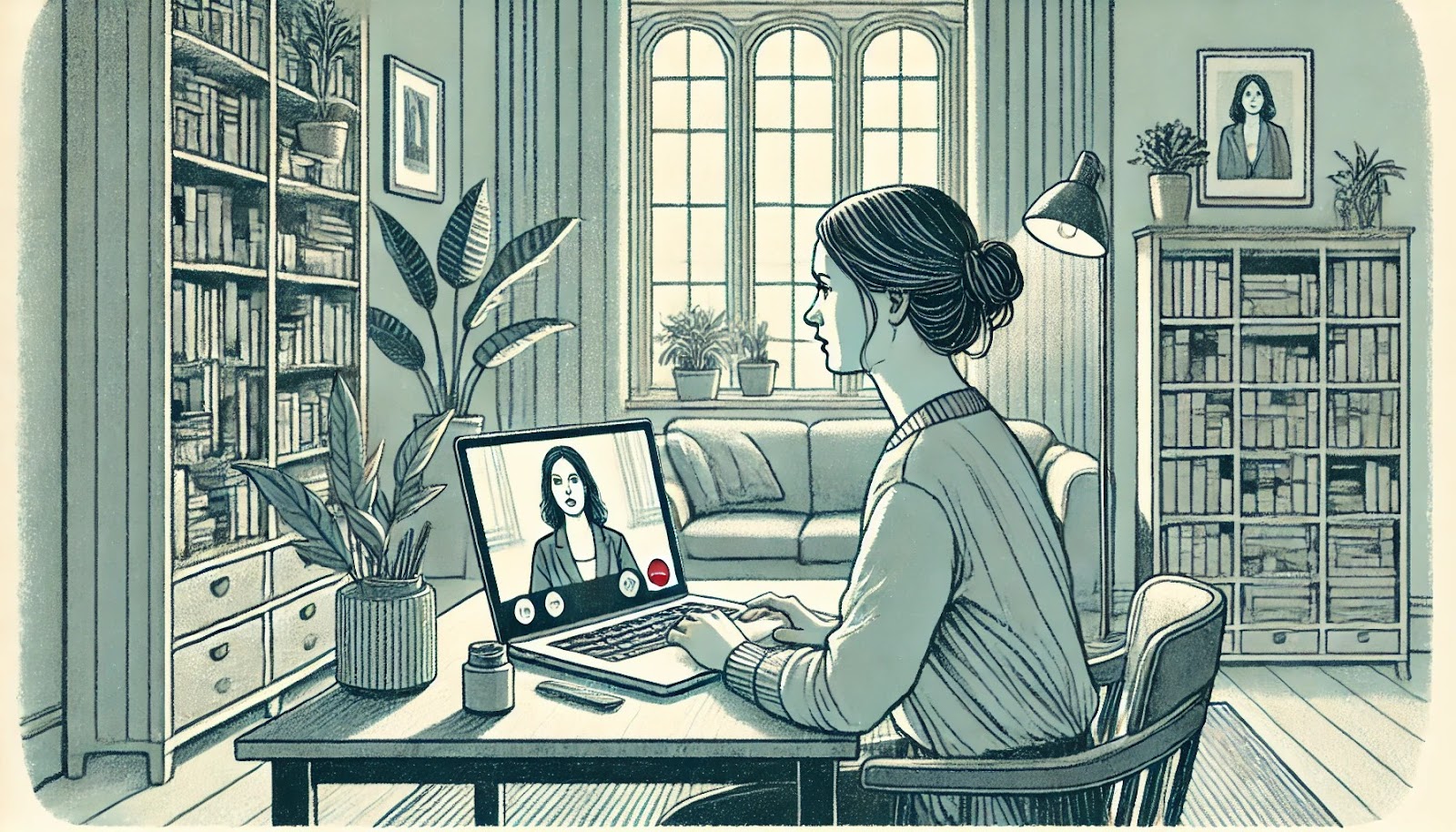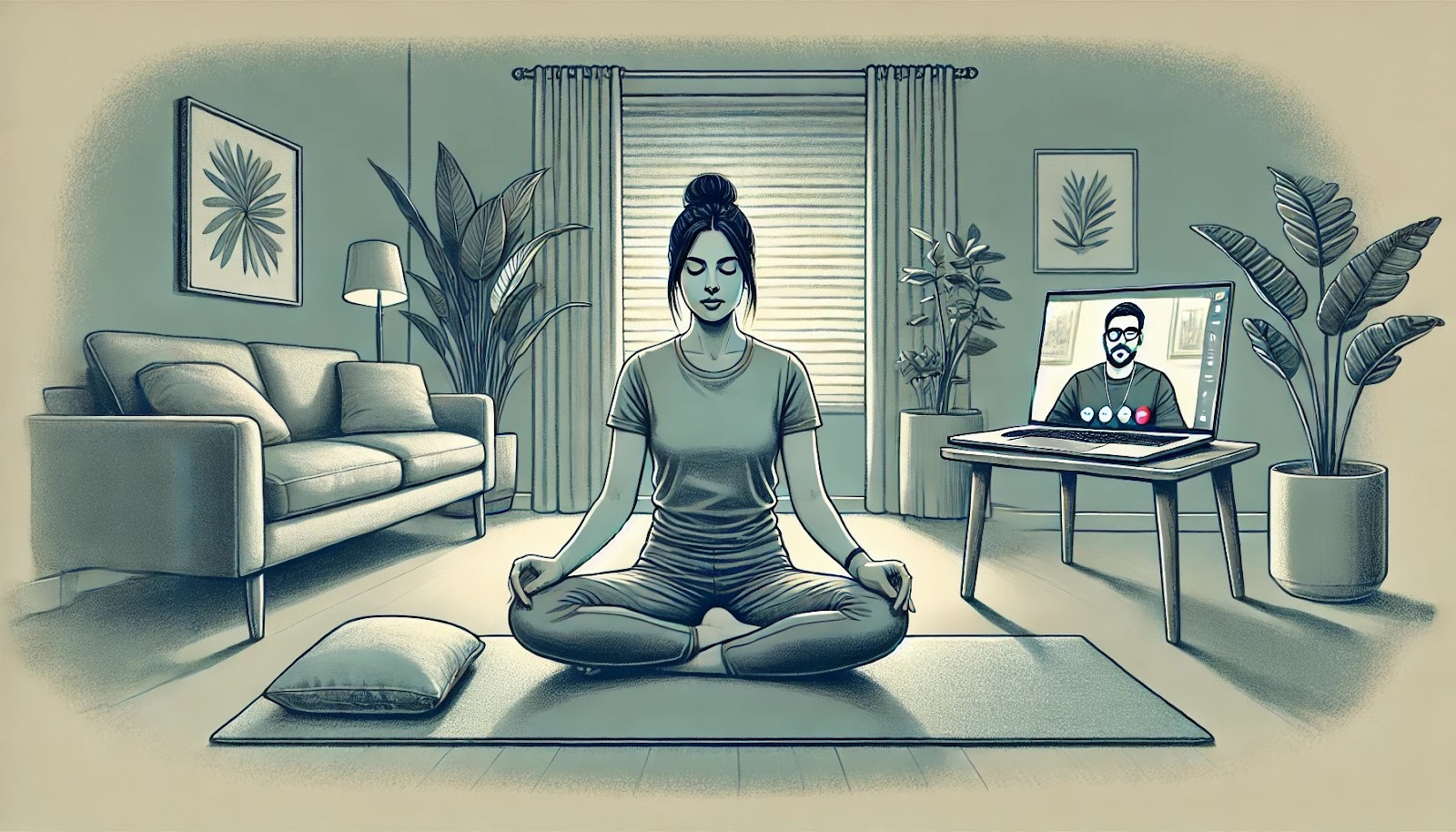
Key Takeaways
- Virtual therapy in Washington provides accessibility to mental health care, especially for those in remote areas or with busy schedules.
- Research confirms that online therapy is as effective as in-person sessions for treating many mental health conditions, including anxiety, depression, and PTSD.
- The technology used in virtual therapy includes secure video calls, phone consultations, and text-based platforms.
- Mission Connection provides comprehensive mental healthcare through a unique hybrid model that combines telehealth and in-person services.
Washington Virtual Therapy
In Washington, virtual therapy has become an important resource for individuals seeking mental health support. This innovative approach breaks down geographical barriers, making therapy accessible to everyone. If you live in the bustling city of Seattle or the serene countryside of the Snoqualmie Valley, you can connect with a licensed therapist from the comfort of your home.
Washington’s progressive telehealth laws have created a strong foundation for these services to thrive. The state implemented SB 5385, which guarantees payment parity by requiring insurers to reimburse telehealth sessions at the same rate as in-person therapy.
Additionally, HB 1196, effective since 2023, expanded access further by allowing audio-only telemedicine options for individuals without video capabilities.
The My Health My Data Act provides crucial privacy protections for health information not covered by HIPAA, ensuring that virtual therapy sessions remain secure and confidential.
The financial accessibility of virtual therapy has also improved significantly through insurance coverage. Major providers, including Medicaid and TRICARE, now cover these services in Washington.
Platforms such as Mission Connection collaborate with insurers to create affordable options for both individuals and families, reducing out-of-pocket expenses and making therapy accessible to a broader population.
Effectiveness of Online Therapy
Online therapy has proven to be as effective as in-person sessions for various mental health conditions. Research shows that virtual therapy can successfully treat anxiety, depression, PTSD, and more.
Therapists use tools like talk therapy and mindfulness techniques that adapt well to virtual sessions, making it possible to provide high-quality care remotely.
Mission Connection offers flexible outpatient care for adults needing more than weekly therapy. Our in-person and telehealth programs include individual, group, and experiential therapy, along with psychiatric care and medication management.
We treat anxiety, depression, trauma, and bipolar disorder using evidence-based approaches like CBT, DBT, mindfulness, and trauma-focused therapies. Designed to fit into daily life, our services provide consistent support without requiring residential care.
Why Choose Virtual Therapy?
Accessibility for Rural Areas
For those living in rural areas, accessing mental health services can be a significant challenge. Virtual therapy removes this barrier, allowing individuals to connect with qualified therapists regardless of their physical location. This increased accessibility can lead to better mental health outcomes and a higher quality of life.
Convenience for Busy Schedules
Life can be hectic, and finding time for therapy can seem impossible. Virtual therapy offers a solution that fits seamlessly into your schedule. If you prefer early-morning sessions or late-night appointments, virtual therapy provides the flexibility you need to prioritize your mental health.

Virtual Therapy vs In-Person Therapy
| Aspect | Virtual Therapy | In-Person Therapy |
| Accessibility | Accessible from anywhere | Limited by location |
| Flexibility | Flexible scheduling | Fixed appointment times |
| Environment | Client’s choice of location | Therapist’s office |
Forms of Online Therapy in Washington
Video Call Sessions
Video call sessions are the most common form of online therapy. They allow for face-to-face interaction between you and your therapist, closely mimicking the experience of in-person sessions.
This format enables therapists to pick up on non-verbal cues, such as facial expressions and body language, which are vital for effective communication.

To participate in video call sessions, you’ll need a reliable internet connection, a device with a camera and microphone, and a quiet, private space. Most therapists use secure platforms like Zoom or Skype to ensure confidentiality and data protection.
Phone Consultations
Phone consultations are a great option for those with limited internet access or who have trouble finding a private space for video calls.
They can be just as effective as video sessions, especially for individuals who feel more comfortable speaking without being seen.
Text-Based Therapy Options
Text-based therapy is an innovative format that involves communicating with your therapist through text messages or chat platforms. This format offers a high degree of flexibility, allowing you to send messages at any time and receive responses within a specified period.

Text-based therapy provides a written record of your conversations, enabling you to revisit and reflect on your progress over time. It’s perfect for individuals who prefer writing over speaking or who need time to process their thoughts before responding.
It’s also a great option for individuals with busy schedules, as it doesn’t require real-time interaction.
Therapeutic Modalities Used in Virtual Therapy
Cognitive Behavioral Therapy (CBT)
Cognitive Behavioral Therapy (CBT) is a widely used modality that focuses on identifying and changing negative thought patterns and behaviors. It’s highly effective for treating anxiety, depression, and other mood disorders.
In a virtual setting, CBT involves structured sessions where you work with your therapist to set goals, develop coping strategies, and challenge unhelpful thoughts. The interactive nature of CBT makes it well-suited for online platforms, where you can share documents and worksheets in real-time.
Mindfulness Practices
Online therapy makes it easy to practice mindfulness from home. Many therapists include guided exercises like breathing techniques, meditation, or even yoga, along with helpful resources to support your mental well-being—all from the comfort of your home.
These practices can help reduce stress, improve emotional regulation, and enhance overall well-being.

Emotionally Focused Therapy
Emotionally Focused Therapy (EFT) explores emotional patterns and develops strategies for healthier communication and stronger relationships. It’s particularly effective for those experiencing relationship challenges or seeking to deepen their emotional bonds.
Considerations When Choosing Virtual Therapy
Assessing Personal Needs and Goals
Before starting virtual therapy, take time to reflect on your mental health needs and goals. Consider what you hope to achieve through therapy and what type of support you require. This self-assessment can guide you in selecting the right therapist and modality.
Ensuring Confidentiality and Privacy
When choosing a virtual therapy provider, ensure that they use secure platforms and adhere to privacy regulations. Ask about their data protection policies and how they maintain confidentiality during sessions.
Also, create a private and comfortable space for your sessions. This will help you feel secure and focused, allowing you to engage fully in the therapeutic process.
Cost and Insurance Coverage
In Washington, the cost of virtual therapy can vary based on factors like the therapist’s experience, the duration of sessions, and the modality used.
Insurance coverage for virtual therapy is another factor to consider. Many insurance providers in Washington now cover online therapy sessions, recognizing their effectiveness and accessibility.
But check with your insurance company to confirm what is covered under your plan. Some providers may require pre-authorization or limit the number of covered sessions.
Finding the Best Virtual Therapy Center
Research and Reviews
Start by researching different virtual therapy centers in Washington. Look for centers with a strong online presence and positive reviews from clients. Reviews can provide valuable insights into the quality of care and the client experience.
Besides online reviews, ask for recommendations from friends, family, or healthcare providers. Personal referrals can be a reliable way to find reputable therapy centers.
Accreditation and Certification
Ensure that the center is accredited by relevant professional organizations. Accreditation ensures that the center adheres to high standards of practice and ethics.
Additionally, verify that the therapists are licensed to practice in Washington. Licensed therapists have met specific educational and professional requirements, ensuring that they provide competent and ethical care.
Availability of Specialized Therapists
Different therapists may specialize in various areas, such as anxiety, depression, trauma, or relationship counseling. Identify your specific needs and look for therapists with expertise in those areas.
Specialized therapists can offer tailored interventions and strategies that align with your goals. This targeted approach can enhance the effectiveness of therapy and lead to better outcomes.
Better Mental Health Starts at Mission Connection

Unlike platforms offering only weekly virtual sessions, our multidisciplinary team provides an integrated approach combining weekly individual sessions with in person group therapy, and psychiatric care. This comprehensive strategy ensures you receive the support you need to address conditions like anxiety, depression, and other mental disorders effectively.
What makes us different is our commitment to personalized care. We don’t believe in one-size-fits-all solutions. Our innovative hybrid model at our facilities in Green Lake and Bellevue gives you the flexibility to maximize the benefits of our in-person services and our secure telehealth platform—making professional mental health support accessible regardless of your location or schedule constraints.
Don’t let Washington’s geographical challenges prevent you from receiving the quality mental health care you deserve. Contact us today and experience comprehensive, personalized care in your mental health journey.
Call Today 866-833-1822.
Frequently Asked Questions (FAQ)
Is online therapy as effective as in-person therapy?
Yes, online therapy is generally as effective as in-person therapy for many mental health conditions. Research indicates that virtual therapy can effectively treat issues like anxiety, depression, and PTSD.
Are virtual therapy sessions secure and private?
Virtual therapy sessions are designed to be secure and private. Therapists use encrypted platforms that comply with HIPAA regulations to protect your information. Ensure that your chosen therapy center uses secure technology and follows strict privacy protocols.
How do I choose a qualified online therapist?
Choosing a qualified online therapist involves checking their credentials, experience, and areas of expertise. Ensure they are licensed to practice in Washington and have a good track record with clients. You can also schedule an initial consultation to gauge their communication style and approach to therapy.
Will my insurance cover virtual therapy?
Many insurance providers in Washington cover virtual therapy sessions. However, coverage can vary depending on your specific plan. Contact your insurance company to verify what is covered, including any copays, deductibles, or session limits.
What treatment options does Mission Connection offer?
Mission Connection goes beyond traditional weekly therapy with a comprehensive approach to mental healthcare. Our treatment plans are customized to each client’s needs, incorporating evidence-based modalities such as CBT and mindfulness practices.
Our innovative hybrid model offers both in-person and telehealth services, allowing you to access care easily.





